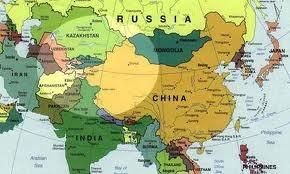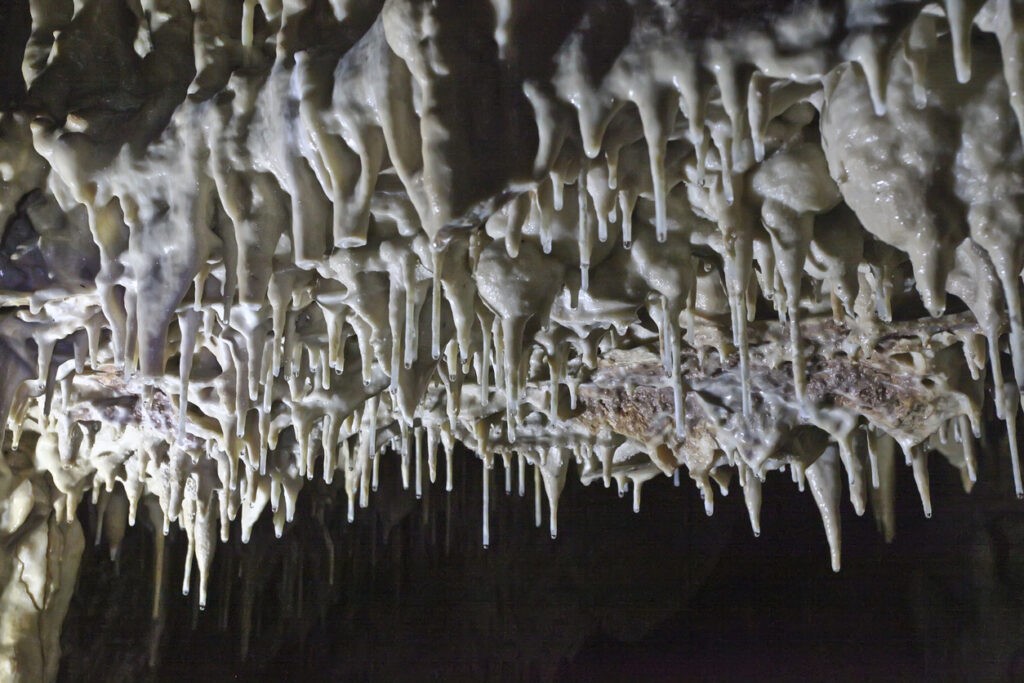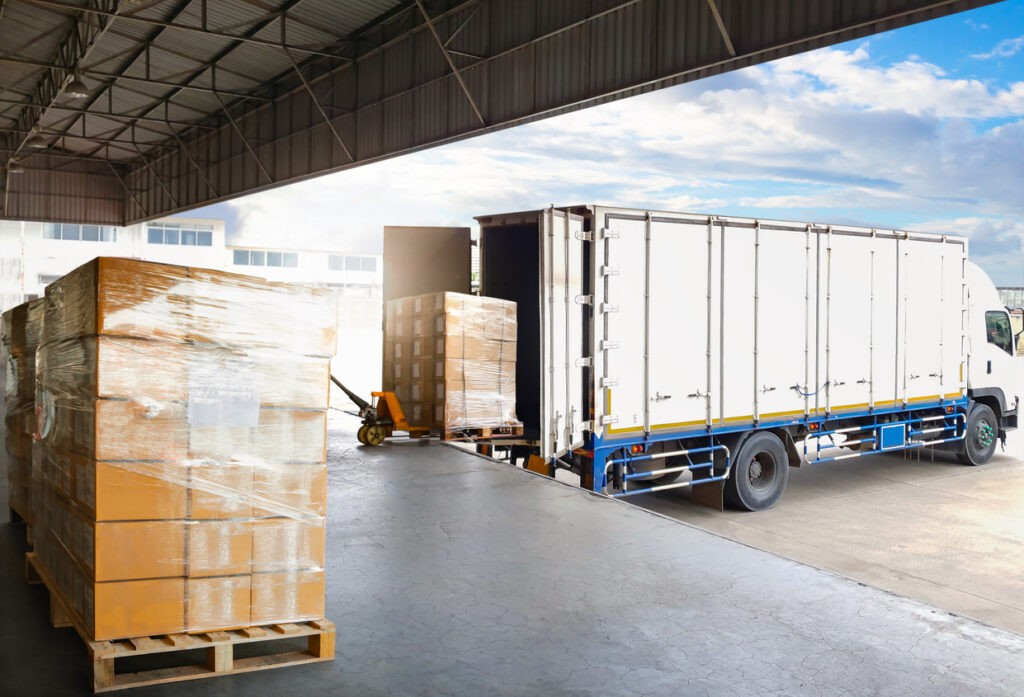BISHKEK (TCA) — The Publisher’s note: Throughout the 19th and 20th centuries, Central Asia was the scene of intense geopolitical struggle and the Great Game between the British and Russian Empires, and later between the Soviet Union and the West, over Afghanistan and neighboring territories. Into the 21st century, Central Asia has become the area of a renewed geopolitical interest, dubbed the New Great Game, largely based on the region’s hydrocarbon and mineral wealth. On top of that, the region now is perhaps the most important node in the implementation of China’s One Belt, One Road initiative through which Beijing aims to get direct access to Western markets. Every week thousands of news appears in the world’s printed and online media and many of them may escape the attention of busy readers. At The Times of Central Asia, we strongly believe that more information can better contribute to peaceful development and better knowledge of this unique region. So we are presenting this Weekly Digest which compiles what other media have reported on Central Asia over the past week.
KAZAKHSTAN
Kazakhstan adopts Hollywood glamor to energize cinema industry
Kazakhstan, with the state support, is trying to find its place in the international film market
Apr 16 — “Mondays are not normally a busy day for cinemas, but at least one screen at the Kinopark 8 complex in Almaty was packed at the start of last week. One of the ticket ushers, a young woman called Madina, said the main movie on show that evening, a patriotically themed Kazakhstan-produced biopic called Amre, has proven quite the hit, especially among young people.” READ MORE: https://eurasianet.org/s/kazakhstan-adopts-hollywood-glamor-to-energize-cinema-industry
Kazakhstan gets Russian flak over UN Syria vote
The failure to get even symbolic support from Astana in the condemnation of western airstrikes against Syria was embarrassing for Russia and caused the irritation at Kazakhstan
Apr 17 — “Indignation is brewing in nationalist quarters in Russia over Kazakhstan’s recent decision to abstain on a Moscow-proposed UN Security Council resolution to condemn airstrikes against Syria by United States, Britain and France.” READ MORE: https://eurasianet.org/s/kazakhstan-gets-russian-flak-over-un-syria-vote
Kazakhstan’s Elderly Opposition Tries Something New
Kazakhstan’s opposition figures find a new platform in Brussels — but the faces are old
Apr 18 — “A diverse team of opposition figures, human rights defenders, and artists from Kazakhstan formed the political platform Zhana Kazakhstan (“New Kazakhstan”) after a meeting in Brussels on April 9, in the latest attempt to form an alternative to President Nursultan Nazarbayev’s seemingly eternal rule.” READ MORE: https://thediplomat.com/2018/04/kazakhstans-elderly-opposition-tries-something-new/
Turkey, Kazakhstan look to boost ties ‘in all areas’
Ankara says it supports Kazakhstan’s fight against the Fetullah Terrorist Organization (FETO), the group behind the 2016 defeated coup in Turkey
Apr 19 — “Turkey is working with Kazakhstan to enhance bilateral ties in all areas, Foreign Minister Mevlut Cavusoglu said on Thursday. Speaking at a news conference with his Kazakh counterpart Kairat Abdrakhmanov in the capital Ankara, Cavusoglu said: “We are working together with the friendly and brotherly Kazakhstan to enhance our relations in all areas.” READ MORE: https://aa.com.tr/en/todays-headlines/turkey-kazakhstan-look-to-boost-ties-in-all-areas-/1122910
New report reviews religion and secularism in Kazakhstan
Researchers suggest that Kazakhstan’s state religious policy should be seen as a work in progress model for the Muslim world
Apr 19 — “Kazakhstan can offer the world a completely different model of state secularism and may serve as an example for other Muslim-majority states, according to a recent study published by the Stockholm-based Institute for Security and Development Policy (ISDP).” READ MORE: https://astanatimes.com/2018/04/new-report-reviews-religion-and-secularism-in-kazakhstan/
KYRGYZSTAN
At Kazakhstan’s main airport, are Kyrgyz being singled out for questioning?
Checks to detect potential extremists from among arriving passengers at Almaty International Airport seem to be singling out nationals of Kyrgyzstan
Apr 18 — “For a few months now, I have been hearing stories of Kyrgyzstan nationals being singled out for particular scrutiny by border officials at Almaty International Airport, in neighboring Kazakhstan. This week, it was my turn.” READ MORE: https://eurasianet.org/s/perspectives-at-kazakhstans-main-airport-are-kyrgyz-being-singled-out-for-questioning
Kyrgyzstan’s indispensable women are undervalued
Women in Kyrgyzstan still tend to live and work in traditionally female occupations, often struggling to make ends meet
Apr 19 — “Last Saturday, Gulnaz Mamytbekova, a nurse in the intensive care unit of her town’s children’s hospital was getting ready to move to Moscow. Everywhere Mamytbekova went, her daughter went with her. After 25 years working at the hospital, Mamytbekova wants to emigrate so she can earn enough money to give her children a “better life”. READ MORE: https://www.opendemocracy.net/od-russia/elnura-alkanova/kyrgyzstans-indispensable-women-are-undervalued%20
Summit County and Arapahoe Basin showed off recycling facilities to media group from Kyrgyzstan
Kyrgyzstan is studying waste-management and recycling experience in the US to introduce best American practices in the Central Asian country
Apr 19 — “Kyrgyzstan is a landlocked, mountainous country in Central Asia that is farther from sea than any other country on the planet. The former Soviet satellite has come far since it became an independent nation after the fall of the USSR in 1991, but it still struggles with some everyday issues — like waste management — that Americans take for granted.” READ MORE: https://www.aspentimes.com/news/summit-county-and-arapahoe-basin-showed-off-recycling-facilities-to-media-group-from-kyrgyzstan/
Government’s resignation in Kyrgyzstan: expert view
Former Foreign Minister of Kyrgyzstan comments on the situation in the country following the government’s resignation amid a rift between the current and former presidents
Apr 19 — “Kyrgyz President Sooronbay Jeenbekov has dismissed Prime Minister Sapar Isakov, his deputies and Cabinet. Earlier the Kyrgyz Parliament expressed its non-confidence in Isakov on the initiative of the Ata Meken, Republic-Ata Zhurt and Onuguu-Progress parliamentary groups.” READ MORE: https://eadaily.com/en/news/2018/04/19/governments-resignation-in-kyrgyzstan-expert-view
TAJIKISTAN
The Full Story Behind China’s Gold Mine-Power Plant Swap in Tajikistan
The project was a carefully negotiated deal between the Chinesee company and the Tajik government, which took place as China has been increasing its economic presence and influence in Tajikistan
Apr 14 — “In the last couple of days, it was reported that a Chinese company, TBEA, has been granted a license to operate the Upper Kumarg gold mine in northern Tajikistan in exchange for the construction of a power plant in Dushanbe. This is likely to be true. It is the culmination of a long-standing agreement that began almost a decade ago.” READ MORE: https://thediplomat.com/2018/04/the-full-story-behind-chinas-gold-mine-power-plant-swap-in-tajikistan/
Turkey’s authoritarian turn deprives Tajiks of safe haven
As authorities in Tajikistan have been persecuting the opposition, Turkey has been used by self-exiled Tajik opposition figures as a relatively safe haven, but the situation there has changed for the worse
Apr 16 — “There was a time when Turkey felt like a safe haven for victims of political repression in Tajikistan. But the threat of attacks by groups like Islamic State and a state of emergency declared after a July 2016 coup attempt have changed all that. As well as embarking on a wave of arrests that put almost 50,000 Turkish nationals behind bars, the government has diluted the protections once afforded to foreign dissidents.” READ MORE: https://timesca.com/index.php/news/19621-turkey-s-authoritarian-turn-deprives-tajiks-of-safe-haven
Tajikistan’s foreign trade up
Russia and Kazakhstan remain the main trading partners of Tajikistan, followed by China
Apr 18 — “The foreign trade turnover of Tajikistan in the first quarter of this year amounted to $1.3 billion. The trade turnover increased by $258.5 million or 33.3 percent compared to the same period in 2017, according to the Statistics Agency under the President of Tajikistan.” READ MORE: https://www.azernews.az/region/130675.html
Tajikistan court jails 71-year old over Islamic State links
Officials say that between 2012 and mid-2016, at least 1,094 Tajik nationals, including around 200 women, joined the Islamic State group
Apr 19 — “A court in northern Tajikistan has sentenced a 71-year old woman to 12 years in jail on charges of links to the Islamic State group. The court in the Sughd region on April 18 also jailed another six members of Mavlyuda Nasriddinova’s family, four of them women, on related charges.” READ MORE: https://eurasianet.org/s/tajikistan-court-jails-71-year-old-over-islamic-state-links
TURKMENISTAN
Too Hot For The Beaches: Turkmenistan Bans Imports Of Bikinis
New bikinis and shorts are just the latest in a long line of goods that the Turkmen government has decided aren’t acceptable for its people
Apr 15 — “Don’t blame the sunbathers in Turkmenistan if their bikinis seem out of style at the country’s forlorn Caspian Sea beach resorts this summer. The Turkmen government has banned the import of new bikinis and other traditional swimwear, forcing swimmers and other beachgoers to use their old suits or come up with their own fashions.” READ MORE: https://www.rferl.org/a/too-hot-for-the-beaches-turkmenistan-bans-imports-of-bikinis/29168513.html
Turkmenistan Clips Wings Of Citizens Fleeing Economic Woes
With estimated unemployment of around 50 percent, skyrocketing inflation, and shortages of staple foods, some people are leaving Turkmenistan in search of better lives abroad
Apr 16 — “In what’s become an almost daily scene at the super-modern, sumptuous Ashgabat International Airport, dozens of ticketed passengers with visas in hand are being told without explanation that they cannot board their planes, often bound for Istanbul or Dubai.” READ MORE: https://www.rferl.org/a/turkmenistan-clips-wings-of-citizens-fleeing-economic-woes/29170508.html
Despite the executed yield targets, Turkmenistan imports cotton
The Turkmen president says the development of the country’s textile industry is hampered by low cotton yields
Apr 16 — “Last week during the bidding at Turkmenistan’s Commodity Exchange 21 deals, including cotton purchase deals, were concluded. The state information agency TDH reported on 14 April that cotton fibre for the amount of over 156 thousand manats ($44,6 thousand using the official rate) was purchased for the Turkmen domestic market.” READ MORE: https://en.hronikatm.com/2018/04/despite-the-executed-yield-targets-turkmenistan-imports-cotton/
UZBEKISTAN
A Hopeful Moment for Uzbekistan
The New York Times editorial says that Uzbek President Shavkat Mirziyoyev’s reform efforts bear watching and deserve support
Apr 13 — “It is a measure of how repressive Uzbekistan was under its first post-Soviet president, Islam Karimov, that the first, tentative steps by his successor to curb the secret police are raising high hopes of an Uzbek Spring in the making.” READ MORE: https://www.nytimes.com/2018/04/13/opinion/uzbekistan-mirziyoev-human-rights.html
Uzbek Journalist Carried The Weight Of Political Oppression, Brick By Brick
One of Uzbekistan’s longest-held prisoners of conscience, free now, states his case after serving 19 years in prison
Apr 13 — “He spent nearly two decades in prison for what are widely seen as trumped-up charges. But recently freed Uzbek journalist Yusuf Ruzimurodov says he holds no grudges against those who put him behind bars.” READ MORE: https://www.rferl.org/a/uzbek-journalist-carried-the-weight-of-political-oppression-brick-by-brick/29166460.html
Uzbek government eases restrictions on Muslims
Under the previous president, Uzbekistan pursued restrictive and suppressive policies toward Muslims and used the fight against Islamist extremism as a pretext to suppress any dissent and opposition. Under the new head of state, things have begun to change
Apr 15 — “This year, Uzbekistan is organizing its first ever nation-wide al-Quran reciters competition (Muslim.uz, December 22, 2017). Perhaps this kind of competition would be a run-of-the-mill event in any other Muslim majority country; but for Uzbekistan, which is trying to unshackle itself from the repressive policies of the past, it signals a major change in the government’s policy and carries a special meaning for the majority of its Muslim citizens” READ MORE: https://timesca.com/index.php/news/19616-uzbek-government-eases-restrictions-on-muslims
Uzbekistan, Russia to jointly create TV channel
Following the president’s instructions, authorities in Uzbekistan are trying to make Uzbek television more interesting to the audience
Apr 17 — “Uzbekistan and Russia have pledged to jointly create a television channel, potentially setting the stage for Moscow to bolster the heft of its soft power in the Central Asian nation.” READ MORE: https://eurasianet.org/s/uzbekistan-russia-to-jointly-create-tv-channel
AFGHANISTAN
A Sigh Of Relief From North Of The Afghan Border
As the security situation in northern Afghanistan has deteriorated, the militant group Islamic State has strengthened its positions in the area, threatening Afghanistan’s neighbors to the north — in Central Asia
Apr 14 — “The view southward from Central Asia has been grim since 2014, when groups of Taliban militants started fanning out across northern Afghanistan. Thinly stretched government forces in the area were forced to enlist the help of local paramilitary groups, known as Arbaky, who arguably are often little more than bandits with a sheriff’s badge and might not be fighting Taliban forces at all.” READ MORE: https://www.rferl.org/a/qishloq-ovozi-analysis—-a-sigh-of-relief-from-north-of-the-afghan-border/29167594.html
At Least $154.4 Million in Fuel Stolen in Afghanistan, Watchdog Says
Fuel theft has become a lucrative venture in Afghanistan, despite years of effort to curb corruption, the Special Inspector General for Afghanistan Reconstruction says
Apr 16 — “The disappearance of at least $154.4 million worth of stolen fuel meant for coalition and Afghan troops may be helping supply Taliban and other insurgent forces in Afghanistan, the top American watchdog for rebuilding in the country said.” READ MORE: https://www.military.com/daily-news/2018/04/16/least-1544-million-fuel-stolen-afghanistan-watchdog-says.html
Can We Admit Now That Afghanistan Reconstruction Failed?
The United States is achieving very little in the way of sustainable development in Afghanistan, despite the enormous amount of time and resources that have been invested in the country
Apr 19 — “Last month, the Special Inspector General for Afghanistan Reconstruction (SIGAR), released a new inspection report that found, after four years and $60 million, a project called the North East Power System, intended to provide cost-effective and reliable power to unserved populations in Afghanistan, was not yet operational.” READ MORE: http://www.theamericanconservative.com/articles/can-we-admit-now-that-afghanistan-reconstruction-failed/
Failure to launch: Afghanistan’s economy stalls without troop presence
After most of international troops left Afghanistan in 2012, the country’s economy stopped growing, according to the Special Inspector General for the Reconstruction of Afghanistan report
Apr 19 — “The Afghan economy tanked after large numbers of coalition troops — and the jobs created to support them — left the country, indicating a 16-year, $122 billion reconstruction effort failed to develop a sustainable economic system, according to a U.S. watchdog agency.” READ MORE: https://www.stripes.com/news/failure-to-launch-afghanistan-s-economy-stalls-without-troop-presence-1.522929
WORLD
A Chinese base in Central Asia
China seeks to increase its military influence in Central Asia and Afghanistan, primarily to ensure security in its Xinjiang region and secure its investments as part of the Belt and Road Initiative in the wider Central and South Asian region
Apr 17 — “During January and February, several reports surfaced of a new Chinese military base in Afghanistan’s Wakhan corridor. According to Afghan officials, China and Kabul discuss building a base in Badakhshan and China will send an expert delegation to Kabul to determine the exact site, and will fund the base and all of its material and technical expenses, including weapons and equipment.” READ MORE: https://timesca.com/index.php/news/26-opinion-head/19626-a-chinese-base-in-central-asia
China’s Belt and Road Initiative – A project of trade and diplomacy
Expert explains what does China’s ambitious quest to recreate the ancient trade routes into Europe mean for Eastern Europe and the Caucasus
Apr 18 — “China’s Belt and Road Initiative (BRI) is an ambitious project that seeks to connect Asia and Europe with the purpose of increasing trade and generating considerable economic growth. It is gaining momentum recently and becoming more noticeable, as one of its aims is gaining access to the European markets and involves significant investments in infrastructure. At the same time, it offers economic alternatives for countries that are willing to take part in this project.” READ MORE: http://neweasterneurope.eu/2018/04/18/chinas-belt-road-initiative-project-trade-diplomacy/
Five risks of the BRI
Han Seung-soo, former prime minister of the Republic of Korea, frames five of the major risks facing China’s Belt and Road Initiative
Apr 18 — “The Belt and Road Initiative (BRI) should be inclusive, not exclusive, and not only towards Asian countries but also other regions in the Americas and Africa. Transportation is vital to society, exemplified by the fact that the Silk Route has been functioning since horses and camels were the only means of transportation. Inclusivity in the BRI is therefore imperative.” READ MORE: https://www.centralbanking.com/central-banks/economics/3456751/five-risks-of-the-bri









